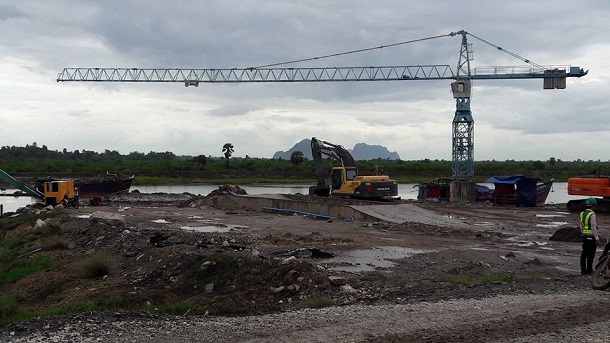Authorities in Mon State for the first time visited a Thai cement factory where a coal power plant was built without informing locals or authorities, said local sources.
Members of the Mon State local government visited the compound of Mawlamyine Cement Limited (MCL) factory in Kyaikmayaw Township—where the power plant was constructed—and spoke with factory officers during the first week in June.
“We told them that people were worried for their safety. The factory has a duty to meet locals and explain the dangers to them,” said Min Kyi Win, minister of natural resources and environmental conservation.
The factory officers told authorities that they had built the power plant based on an agreement they had with the previous government.
Min Kyi Win said this visit was intended to collect information to send to the Union government about the condition of the plant, adding that it was in a testing phase and not in operation yet.
The factory officers said that they intended to use coal power if the government could not provide adequate electric power for the cement factory, adding that their prior agreement gave them the option to use electric, gas or coal as a power supply.
Min Kyi Win said that it is standard for the local government to perform environmental safety checks on coal power plants every three months.
“If we find environmental dangers, we need to take action against the factory,” he added. “The important thing is to raise awareness about the effects of the plant on the local people.”
The minister added that gas from Burma is sold largely to neighboring countries, and that he did not think the government would be able to supply sufficient electric or gas power to the plant. This prompted the cement factory to build their own plant without regard for the risks to local people.
The cement factory is a subsidiary of the Siam Cement Group (SCG), and is situated near the Ataran River—an important water source for at least five villages in the area. Locals have spoken out against the use of the coal plant after being informed of the associated risks.
The cement factory was planned to be fully functional by March, and would boast a production capacity of 1.8 million tons of cement per year. According to an SCG report, the company—one of Thailand’s largest cement manufacturers—invested around US$7 billion in expansion over the next five years. Fifty percent of the investment is designated toward the construction of more factories in ASEAN countries, including Burma.

















